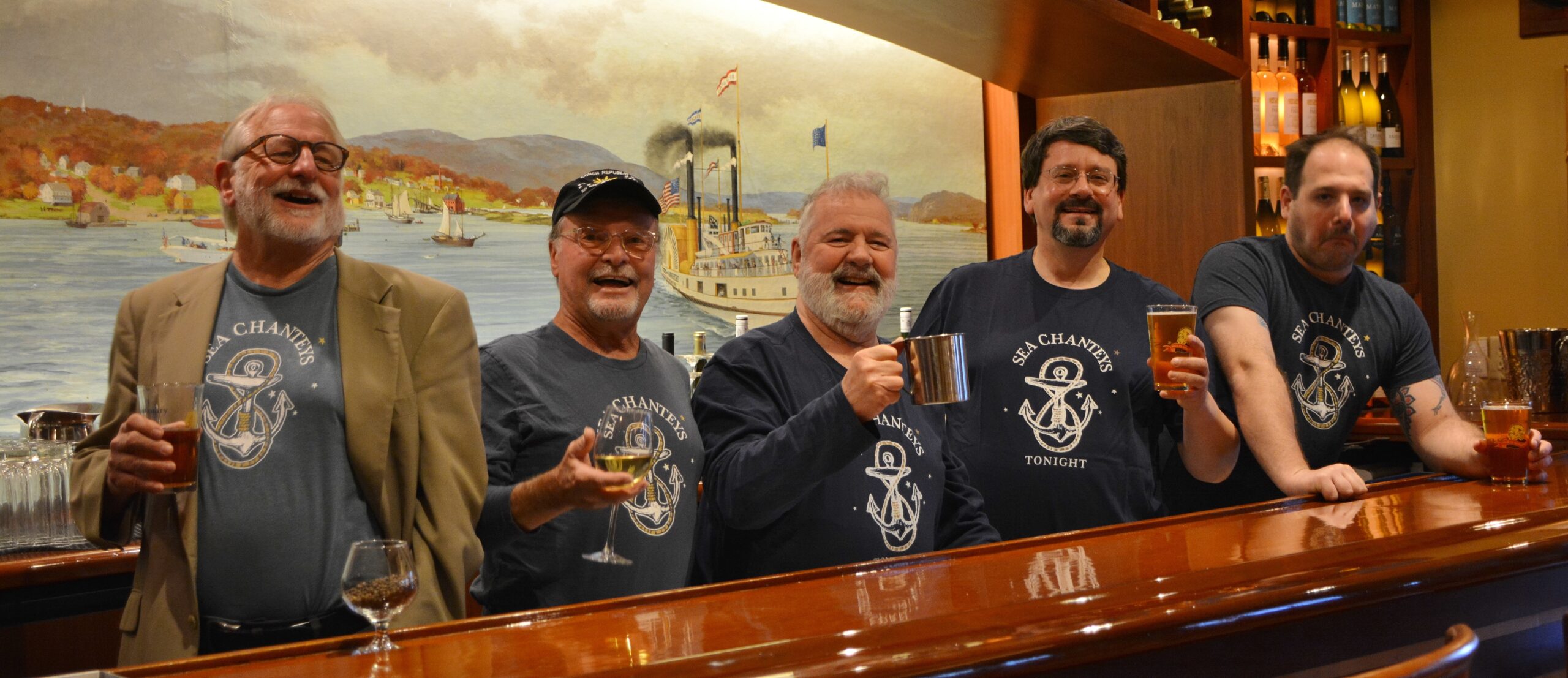Sam’s Gone Away is a capstan chantey of murky origins. While varying sea music historians like to claim it for one origin or another, folk musicologists pin it as a ballad of English origins that “might” date to the late 18th century but certainly before the 1820s. It appears in some of the singing tradition in Newfoundland and Nova Scotia, as well as having made its way into the traditions of fishermen and maritime workers of the southern US and along the Gulf of Mexico; folk songs tend to do that, being picked up by others and so moves along; consider the myriad folk songs of English, Irish, Scottish, and Welsh origin that made it into the lexicon of Appalachian culture. It’s a good starter chantey as it is mostly chorus, the leader simply singing the opening line alone. It starts with wishing to be a cabin boy and rises up through the ranks ultimately ending with wishing to be the admiral! But many today add silly lines such as wishing to be the figurehead or a seagull or even a barnacle.
At a sea music festival at Mystic Seaport, sometime in the early 90s, I was party to a conversation which included then Louis Killen (Louisa-Jo Killen) in which the song “Pleasant and Delightful” was the topic. Very soon, the question was posed that one of the people in this conversation inquired about the origins of “Sam’s Gone Away”. I clearly recall that Lou responded that, while the song is usually credited as having come to us through the singing of the Caribbean tradition, he had learned it from other folk singers in the UK. He went on that while Bert Lloyd was known for having brought a degree of popularity to it, that he understood that it was in the collection of the Copper Family and others, and that it was believed to have dated from the Napoleonic wars if not earlier. Another time, I was a guest at the Paton Family house and studio, working on some recordings with David Paton, when chatting with Sandy Paton, I brought this up. The song was one of those at the time which occasionally became a “brain worm”. Sandy told me that he had learned of it by way of a Jack Stanesco, who had picked it up from a singer in the Caribbean – St-Vincents comes to mind – and that Jack had actually recorded it in that very studio on an album “The New Golden Ring”. Having said that, he had later heard the same thing; that it was in the earlier papers/collection of the Copper Family but that it only had three or four verses, and that it was also supposed to have been collected by a local singer, former Royal Navy seaman in the Portsmouth area sometime in the 1950s, but he’d need to look up the details and get back to me. Sandy did say that it is in a collection of folk songs from Nova Scotia also recorded around that same time, but he wasn’t sure which recording; he’d look it up and also get that info to me. He never did, and I had moved on.
Jos. Morneault
Cliff singing “Sam’s Gone Away” on the 1976 Folkways album “Colonial and Revolutionary War Sea Songs & Chanteys“.
I wish I was a cabin boy, aboard a man o’ war!
Sam’s gone away, aboard a man o’ war!
Pretty work, brave boys,
Pretty work, I say!
Sam’s gone away, aboard a man o’ war!
I wish I was sailor, aboard a man o’ war!
I wish I was foretopman, aboard a man o’ war!
I wish I was a gunner, aboard a man o’ war!
I wish I was the bos’un aboard a man o’ war!
I wish I was a midshipman…
I wish I was the master…
I wish I was lieutenant…
I wish I was the captain…
I wish I was the admiral…
